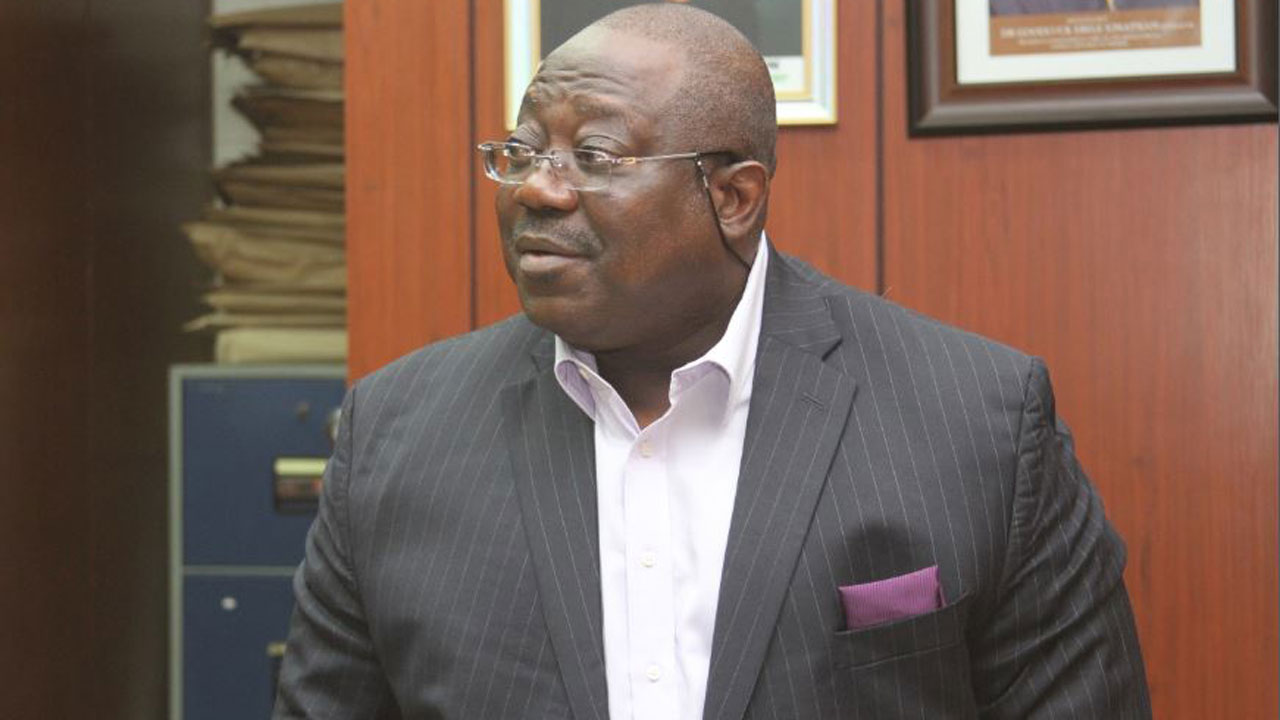
The latest now is the thinking in Russia that Ukraine harbours a large population of “Nazi elements.” A Russian said to be a leading light by name Timofey Sergeytser, wrote an article in which he said Ukraine must be “cleansed of Nazi elements.” It is believed he would know because he had worked for a former President of Ukraine who was removed during the 2014 massive protests called Orange Revolution. The claim was that the former President in question was pro-Kremlin. The reaction to the publication by the leading intellectual was from the West- – Oxford and Berlin was swift and direct. Experts in Oxford said Timofey Sergeyter has been known to make such “outlandish and outrageous claims in the past.” To Germans in Berlin who are reputed to be experts on Russia, the article amounted to a “genocide masterplan.”
The brick-bat between nations has always been an accustomed weapon of war. What must be troubling to human beings with feelings is the sight of troops in full battle gear hunting for fellow human beings, training their guns against any movement by real or imaginary men—in sight or in hiding—to mow down and they do so with glee. They are completely oblivious of their personal responsibility for every life that is lost or harmed in their hands in the unwarranted bitter and crushing conflict. It is each person before the self-acting and incorruptible Law of Life, the Law of the Creator, in life hereafter or in another earthlife. Nothing is lost, and ignorance of the Law is no defence nor does it offer protection from weavings that later manifest in consequences—fruits in accordance with the nature of seed sown.
Our country has been driven into this vortex of life that is uncertain, that is short and brutish. Nigerians have found themselves in this situation not for lack of a sense of foreboding and disconcertedness. Who did not know that if the trend of the waves of the insecurity in the land continued, it would get worse? Have you heard? A large number of bandits besieged Kaduna Airport on Saturday, March 26. Two days later, March 28, they bombed a Kaduna-bound train from Abuja carrying 362 passengers. It is a train built with capacity to carry 840 passengers. Eight persons were killed and 21 were reported missing, a euphemism for abduction. Of the passengers, railway authorities say 170 have been confirmed safe. Security agents among them soldiers at a road block were taken unawares by gunmen who opened fired at them, felling them, about eight of them, according to reports.
When the train attack occurred, confidence was just being restored on travelling by road on the Abuja- Kaduna road. There is no doubt that that confidence must have been shaken with the bombing of the train. All over the world, trains are regarded as the safest and arguably the most comfortable mode of transportation. Because of the embarrassing nature of it, there was a hushed report of an attack on the convoy of Deputy Governor of Kebbi State, Samaila Yombe Dabai. It occurred at Kanya in Dangu Wasaga Local Government area of the state. Some of the soldiers and policemen in the convoy were reportedly killed. The Kaduna train attack has gone to dramatize the seriousness of the security situation in the country. Fear pervades the land about the security of our people. It is hoped that the unpredicted attack on the train will jolt the Federal Government out of its ostrichism and think outside the box—other than the time- tested police architecture which has proven successful in other lands, lands of the size of Nigeria and even bigger and which are federations.
If you ask me, like the practice in big and federal nations, the answer lies in the establishment of the state police. We are not reinventing the wheel. Without the establishment of state police we are only wasting our time and wasting lives. All the arms of our security agencies are over- stretched in the bid to return security normalcy to the land. As this column has had cause to state about three times now, there is no way the Nigerian security situation could have deteriorated this badly were the state police to be in place. There was no way state police recruited from the indigenes of Borno State would have, with their eyes open, folded their arms and allowed their state to disintegrate socially and economically. Around Maiduguri, Adamawa and Yobe, there are about three million Internally Displaced Persons (IDPs). The figure started with 650,000 in 2014 and rose to 868,335 by the end of that year. Borno State has 81 per cent of the total IDPs in the country. There are about 81, 132 in Benue State. At the peak of the crisis the figure was reportedly 780, 000. Now, according to ReliefWeb report, Nasarawa hosts 17, 114, Plateau, 15, 981 and no fewer than 10,000 in Taraba State. There are more than 2million in Katsina, Sokoto and Zamfara. There are four IDP camps in Abuja—Lugbe IDP camp; Area1 IDP Camp, New Kuchingoro IDP camp and Kuje IDP camp. There are more than 200,000 Nigerian refugees in neighbouring Niger Republic. They are Nigerians who fled there from raids on their communities by bandits and kidnappers.
The state governors have shouted themselves hoarse pressing for the establishment of their own police, arguing that they are only chief security officers of their states in name only. And yet, they bear the bulk of the cost of the Federal Police—Nigeria police—in their domains. Let’s listen to Dr. Kayode Fayemi. Speaking on security votes the governors collect, he said;
“You say what do we do with it? Without mincing words, I can’t speak for others, but I also get feedback from other states in my capacity as chairman of the governors forum. There is hardly any of these institutions that you are talking about that we do not fund. We fund the police. Quote me, state governors fund police more than the Federal Government. We buy them vehicles. We pay them allowances. In some cases we even buy ammunition, of course under authority.
“And if we are to engage our Military in aid to civil authority which you will find actually in 36 states in this country, we fund it. Today, the military is involved in internal security operations, which really is a problem, because for me, when you inflate the role of security institution beyond its primary responsibility you also have consequences that will come with that. That may not be palatable. But that is where we are, because most Nigerians don’t trust the police. They will still come and beg governors to say ’can you ask the brigade commander to put a roadblock in my area.’’
Ordinary citizens, according to him, sometimes insist that governors should engage soldiers even though military roadblocks could not be set up everywhere because the number of soldiers is limited. Dr. Fayemi went on: “If you engage the military in a civil authority, your state is responsible to pay for the operations of the men that are engaged in that activity and not expect the military also to share that burden because that is not their primary responsibility. You have taken them out of their primary responsibility; you have to pay for it. So we pay for that; we pay for Civil Defence. There is no security institution that the states are not responsible to more than the Federal Government that has primary responsibility for them.”
If the governors do this what then is left? The argument that the states would not be able to fund the police falls flat. It is a convenient excuse. Where there is no security as has been proven, there will hardly be production whether on the farms or in factories and so the economy cannot grow how much more flourish. There is no investor who will take his money to where it is not safe.
It is not as if Nigeria has always run a centralized police formation. Two Nigerian scholars I have referred to in my previous conversation on this subject, have done exhaustive studies separately into policing in our country. While Dr. Okeke V.O.S. of the faculty of Social Sciences in the renamed Anambra State University, Igbariam, gave insight into the emergence of the phenomenon of vigilance security apparatus, Professor Kemi Rotimi, one-time head of Department of History at Obafemi Awolowo University , did extensive work on the development of policing system even from pre-existence of Nigeria. After going through Professor Rotimi’s work, one can’t but come to the conclusion that state police is the answer to the seemingly intractable security challenges afflicting the country. It is an imperative. It is inconceivable that we can think of any other way out of this mess without giving the establishment of state police serious consideration.
In the first Republic the West had three tiers of policing, namely the Nigeria Police Force, (the Federal that the Yoruba called Olopa Eko), the Regional with headquarters at Iyaganku in Ibadan and the then Akoda. The Local Government Police transformed from Native Authority Police which itself evolved from local arrangements—Ilari in Oyo and Ibadan; emeses at Ife, Ilesha, and Ekiti; and agureren in Ijebu, all in Yoruba Kingdoms. In the end the Native Authority Force existed with Akoda. In the North, there were Dongari and Native Authority Police Force.
The states and their governors have for a long time been roaring to go. They have deviced all kinds of security engineering. To back their quest, they establish Trust Fund. In Lagos for example, as of 2017, the Security Trust Fund had received cash donation of N199million and N91million worth of equipment—cars and gadgets. But the federal Government has been standing in their way, burying its head in the sand and plunged the country into an unprecedented security mess.
General I.B. M. Haruna was to say to Vanguard on Monday, commenting on the insecurity in the land: “It is a part of the menu for the de-democratization of Nigeria. Many elements will come into it as we approach the 2023 elections. I think it is a pursuit of certain interest in continuation of Nigeria’s sovereignty and democracy. These ingredients will be coming into play in what I call the menu for the de-democratization of Nigeria by 2023. Within the context of insecurity, the overall intent is to de-democratize Nigeria. Our efforts are now on to democratizing Nigeria but the insecurity and responses to it are deliberately being brewed to disrupt the 2023 elections. When that happens, it may lead to an alternative but not democracy. That people who are making decisions now are unable to nail insecurity on its head shows that they may be unknowingly or knowingly part and parcel of the unscripted play.”
This must be food for thought for those who love our country, coming from IBM Haruna!






